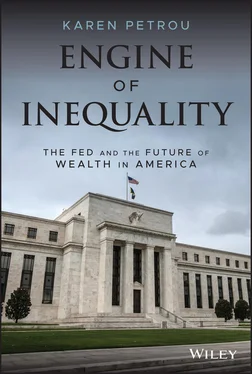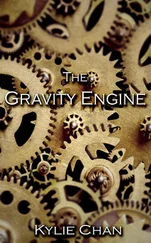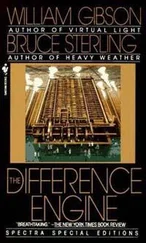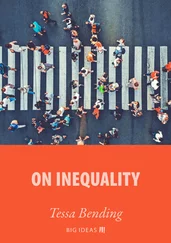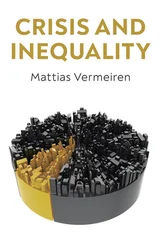9 8. Binyamin Appelbaum, “Janet Yellen Gives an Economic Short Course, Beyond Interest Rates,” New York Times, January 12, 2017, available at https://www.nytimes.com/2017/01/12/business/janet-yellen-interest-rates.html.
10 9. Heather Long and Andrew Van Dam, “The black-white economic divide is as wide as it was in 1968,” Washington Post, June 4, 2020, available at https://www.washingtonpost.com/business/2020/06/04/economic-divide-black-households/.
11 10. Bruce Springsteen, “Glory Days,” April 3, 1982, track #10 on Born in the U.S.A., Columbia, June 4, 1984, studio album.
12 11. Vice President George H.W. Bush, “Address Accepting the Presidential Nomination at the Republican National Convention in New Orleans” (speech, New Orleans, August 18, 1988), available at https://www.presidency.ucsb.edu/documents/address-accepting-the-presidential-nomination-the-republican-national-convention-new.
13 12. David McCullough, Truman (New York: Simon & Schuster, 1992), 663.
14 13. Ali Alichi, Rodrigo Mariscal, and Daniela Muhaj, “Hollowing Out: The Channels of Income Polarization in the United States,” IMF Working Paper WP/17/244 (November, 2017), available at https://www.imf.org/en/Publications/WP/Issues/2017/11/15/Hollowing-Out-The-Channels-of-Income-Polarization-in-the-United-States-45375.
15 14. Chuck Collins and Josh Hoxie, “Billionaire Bonanza 2018: Inherited Wealth Dynasties of the United States,” Institute for Policy Studies 3 (October 30, 2018), available at https://ips-dc.org/wp-content/uploads/2018/11/Billionaire-Bonanza-2018-Report-October-2018-1.pdf.
16 15. FRB, “Report on the Economic Well-Being of U.S. Households in 2019, Featuring Supplemental Data from April 2020,” 25 (May 14, 2020), available at https://www.federalreserve.gov/publications/files/2019-report-economic-well-being-us-households-202005.pdf.
17 16. FRB, “2016 Survey of Consumer Finances Chartbook,” 7 (October 16, 2017), available at https://www.federalreserve.gov/econres/files/BulletinCharts.pdf.
18 17. Emmanuel Saez, “Striking It Richer: The Evolution of Top Incomes in the United States” (updated March 2, 2019), available at https://eml.berkeley.edu/∼saez/saez-UStopincomes-2017.pdf.
19 18. FRB, “Report on the Economic Well-Being of U.S. Households,” 21.
20 19. Ibid.
21 20. Joseph C. Sternberg, The Theft of a Decade: How the Baby Boomers Stole the Millennials' Economic Future (New York: PublicAffairs, 1999).
22 21. Kasey M Lobaugh, Bobby Stephens, and Jeff Simpson, “The consumer is changing, but perhaps not how you think,” Deloitte Insights, May 29, 2019, available at https://www2.deloitte.com/insights/us/en/industry/retail-distribution/the-consumer-is-changing.html.
23 22. Andrew Van Dam, “The unluckiest generation in U.S. history,” Washington Post, May 27, 2020, available at https://www.washingtonpost.com/business/2020/05/27/millennial-recession-covid/.
24 23. Merrill Edge, “Spring 2019 Merrill Edge Report” (June 14, 2019), available at https://olui2.fs.ml.com/Publish/Content/application/pdf/GWMOL/Merrill_Edge_Report_Spring_2019.pdf.
25 24. Jung Hyun Choi, Alanna McCargo, Michael Neal, Laurie Goodman, and Caitlin Young, “Explaining the Black-White Homeownership Gap, Urban Institute” (October 2019, updated November 2019), available at https://www.urban.org/sites/default/files/publication/101160/explaining_the_black-white_homeownership_gap_1.pdf.
26 25. Lisa J. Dettling, Joanne W. Hsu, Lindsay Jacobs, Kevin B. Moore, and Jeffrey P. Thompson, “Recent Trends in Wealth-Holding by Race and Ethnicity: Evidence from the Survey of Consumer Finances,” FRB FEDS Note, September 27, 2017, available at https://www.federalreserve.gov/econres/notes/feds-notes/recent-trends-in-wealth-holding-by-race-and-ethnicity-evidence-from-the-survey-of-consumer-finances-20170927.htm.
27 26. FRB Chair Janet L. Yellen, “Normalizing Monetary Policy: Prospects and Perspectives (speech, San Francisco, March 27, 2015), available at https://www.federalreserve.gov/newsevents/speech/yellen20150327a.htm.
28 27. Michael S. Derby, “Fed's Williams: Economy May Be Bottoming as Fed Weights Yield-Curve Control,” Wall Street Journal, May 27, 2020, available at https://www.wsj.com/articles/feds-williams-economy-may-be-bottoming-as-fed-weighs-yield-curve-control-11590594508.
29 28. Valerie Wilson and Janelle Jones, “Working harder or finding it harder to work,” Economic Policy Institute, February 22, 2018, available at https://www.epi.org/publication/trends-in-work-hours-and-labor-market-disconnection/.
30 29. FRB Gov. Lael Brainard, “Is the Middle Class within Reach for Middle-Income Families?” (speech, Washington, D.C., May 10, 2019), available at https://www.federalreserve.gov/newsevents/speech/brainard20190510a.htm.
31 30. U.S. Bureau of Economic Analysis, “Real Gross Domestic Product,” retrieved from Federal Reserve Economic Data (FRED), Federal Reserve Bank of St. Louis on July 19, 2019, FRED Economic Data Series GDPC1, available at https://fred.stlouisfed.org/series/GDPC1.
32 31. Michael R. Strain, “Americans May Be Strapped, But the Go-To Statistic Is False,” Bloomberg, June 4, 2019, available at https://www.bloomberg.com/opinion/articles/2019-06-04/the-400-emergency-expense-story-is-wrong?srnd=opinion.
33 32. Aparna Mathur, “Poor Work Incentives in Disability: What to Do,” Forbes, September 22, 2016, available at https://www.forbes.com/sites/aparnamathur/2016/09/22/poor-work-incentives-in-disability-what-to-do/#34a3ca8b3a14.
34 33. See for example: Phil Gramm and John F. Early, “The Myth of American Inequality,” Wall Street Journal, August 9, 2018, available at https://www.wsj.com/articles/the-myth-of-american-inequality-1533855113.
35 34. Brainard, “Is the Middle Class within Reach for Middle-Income Families?”
36 35. Moritz Kuhn, Moritz Schularick, and Ulrike Steins, “Income and Wealth Inequality in America, 1949-2016,” FRB-Minneapolis Opportunity & Inclusive Growth Institute Working Paper 9, (June, 2018), available at https://www.minneapolisfed.org/institute/working-papers-institute/iwp9.pdf.
37 36. Brainard, “Is the Middle Class within Reach for Middle-Income Families?”
38 37. Milton Friedman, Capitalism and Freedom: Fortieth Anniversary Edition (Chicago: University of Chicago Press, 2002), 133.
39 38. Henning Hesse, Boris Hofmann, and James Weber, “The Macroeconomic Effects of Asset Purchases Revisited,” Bank for International Settlements (BIS) Working Paper No. 680 4 (December 2017), available at https://www.bis.org/publ/work680.pdf.
40 39. FRB, “Distribution of Household Wealth in the U.S. since 1989: Corporate equities and mutual fund shares,” FRB DFA: Distributional Financial Accounts (2018:Q4), accessed June 5, 2019, available at https://www.federalreserve.gov/releases/z1/dataviz/dfa/distribute/table/#quarter:117;series:Corporate%20equities%20and%20mutual%20fund%20shares;demographic:networth;population:all;units:shares.
41 40. Michael Batty, Jesse Bricker, Joseph Briggs, Elizabeth Holmquist, Susan McIntosh, Kevin Moore, Eric Nielsen, Sarah Reber, Molly Shatto, Kamila Sommer, Tom Sweeney, and Alice Henriques Volz, “Introducing the Distributional Financial Accounts of the United States,” FRB Finance and Economic Discussion Series (FEDS) 2019-17 (March, 2019), available at https://www.federalreserve.gov/econres/feds/files/2019017pap.pdf.
42 41. David Willetts, “Intergenerational warfare: Who stole the millennials' future?” Financial Times, July 3, 2019, available at https://www.ft.com/content/0c2a575a-8c4b-11e9-b8cb-26a9caa9d67b.
43 42. Alex J. Pollock, Finance and Philosophy: Why We're Always Surprised (Philadelphia: Paul Dry Books, 2018), available at https://books.google.com/books?id=7DmqDwAAQBAJ&pg=PT88&lpg=PT88&dq=Alex+Pollock+trillion+from+savers&source=bl&ots=HmHZvstfmO&sig=ACfU3U0pFdc5g3_n6EtwPv3evRNMrw-J_A&hl=en&ppis=_e&sa=X&ved=2ahUKEwiJwdDUz_7nAhXMlnIEHbH4BTAQ6AEwAXoECAoQAQ#v=onepage&q=2.4&f=false.
Читать дальше
